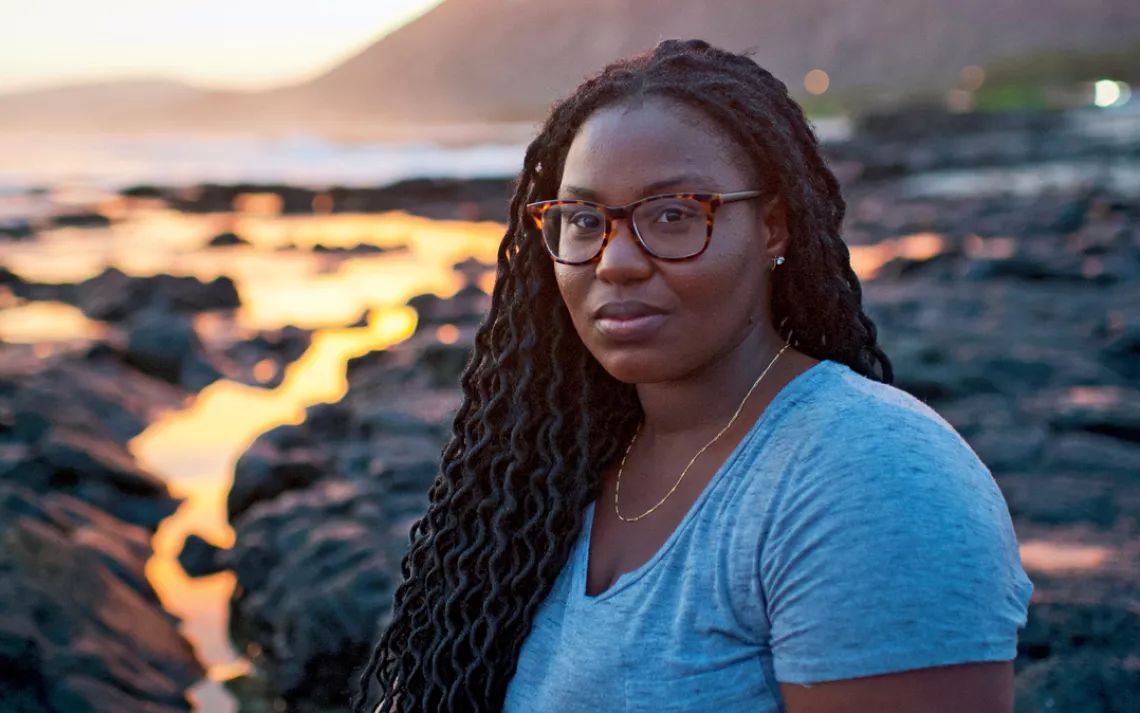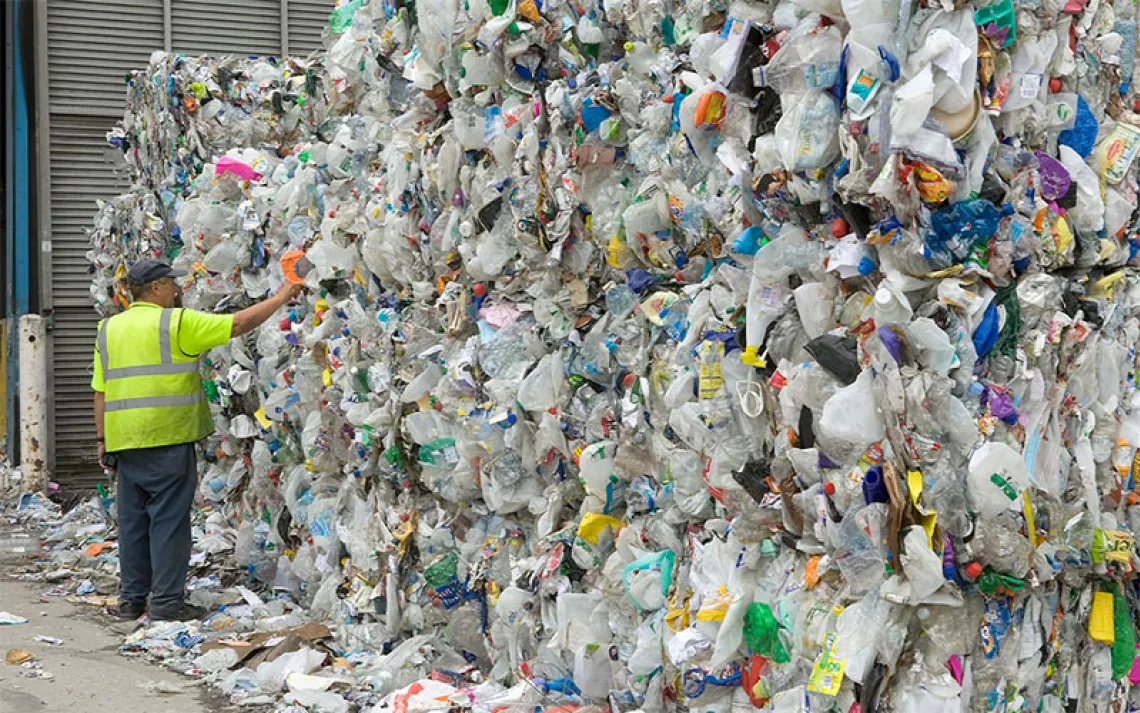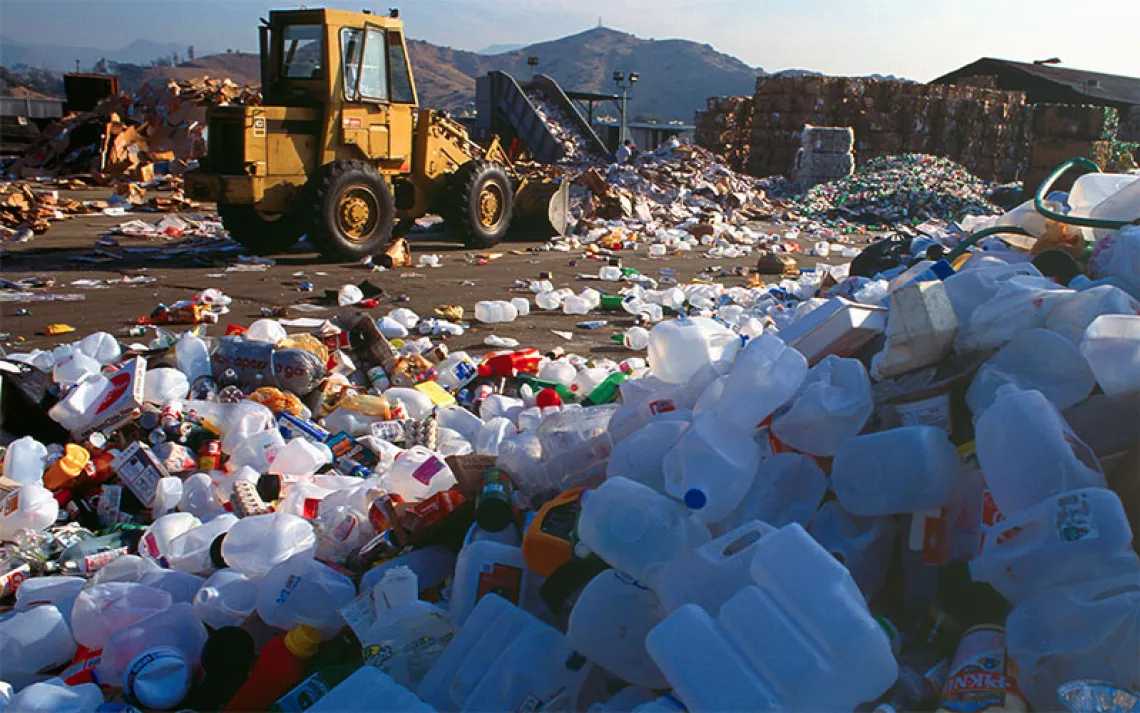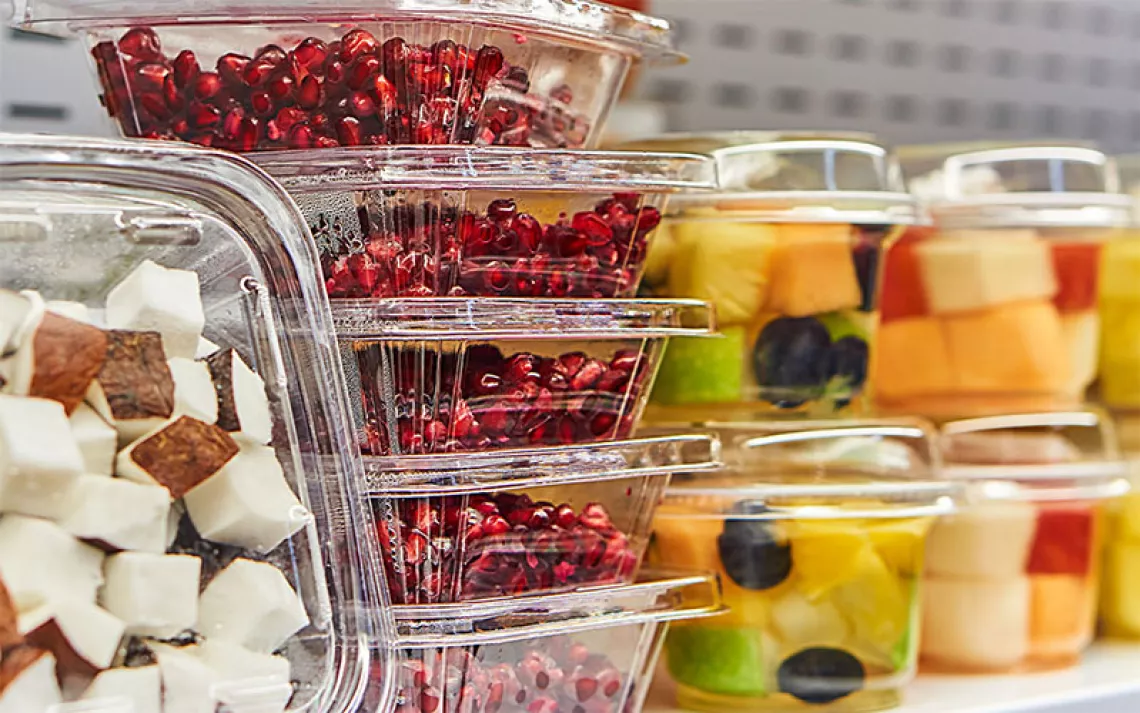Kristal Ambrose Recruits Kids to Purge Plastic in the Bahamas
An expedition served as a catalyst for this budding scientist

Kristal Ambrose, founder of the Bahamas Plastic Movement | Photo by Elyse Butler
ABOUT A WEEK AND A HALF INTO their expedition from the Marshall Islands to Japan, Kristal Ambrose and her dozen or so crewmates found a tangle of nylon fishing nets in the water. Fighting off the seasickness that had been plaguing her since the first day, Ambrose dove in with her snorkel and mask. Down below, she discovered dead and dying fish and a thick smog of micro-plastics—plankton-size particles that can be found throughout the world's oceans.
The expedition had been organized by the nonprofit 5 Gyres Institute, which works to end the scourge of marine plastics, and was led by one of its founders, Marcus Eriksen. Ambrose had met him briefly at her workplace, the Cape Eleuthera Institute, in her native Bahamas, and his invitation to join the crew had been laughably last minute. She'd had only a week to raise $4,000, secure a visa, and fly to the Marshall Islands. Fortunately, the pieces fell into place. The trip ended up being a major catalyst for Ambrose, herself a budding scientist.
After returning to the island of Eleuthera, she noticed a deluge of single-use plastic at the shoreline—yogurt containers, straws, bags, and bottles. Ambrose started recruiting local students for beach cleanups and had them document the size and number of all the plastic pieces they found. The Bahamas Plastic Movement was born.
Five years later, Ambrose, now 27, runs a free five-day summer camp for youths on Eleuthera. Last summer, 30 students aged seven to 15 trawled for plastic in the Exuma Sound, bisected and documented plastic debris in the stomachs of sport fish like mahimahi, built community trash cans out of plastic bottles, and convinced local restaurants to stop using straws. The camp ended with a "trashion fashion" show.
"South Eleuthera is economically depressed," Ambrose said. "Most of these students are idle, with nothing to do. We bring the issues to them and give them a platform to find solutions that work for the community."
This article appeared in the May/June 2017 edition with the headline "Purging Plastic."
Micro-Plastics, Macro-Pollution According to a 2014 study conducted by 5 Gyres and a team of international scientists, 5.25 trillion particles of plastic, weighing approximately 268,940 tons, pollute the world's oceans.
 The Magazine of The Sierra Club
The Magazine of The Sierra Club



